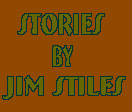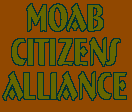

Approaching my old home grounds, Jackson's Hole, I start gearing down. Deep breathing, concentrating on traffic, letting all else blur by. But a parking place has to be found and by then I've remembered the sagebrush flats where Albertson's grocery monopoly now squats, and the springtime shows of Johny Jump-ups and wild onion and windflower, and the paved-over willow patches along Cache Creek. I begin to lose it. I start making judgments.
Yes, nostalgia is a dangerous ailment, but it has a saving side, the use of remembrance to make sense of shreds of history, and the places where history has landed us. Where would we be without those selected memories colored by emotion? True, they're often, maybe usually, overly simple, sentimental in a bad way, misanthropic and racist, et cetera. Old timers in Jackson's Hole complained that the valley wasn't like it used to be, too damn many people; they swore they'd light out for the territory: Alaska. Some did go north; most stayed; some made good money catering to the summertime hordes.
Without nostalgia, how would we know that it's things like zillionaire trophy homes and Cloudrocks and maquiladoras on the border that disgrace the American landscape? Our touchstones for comparing good, bad and indifferent don't spring up from zero, they are ragged survivors from the past, once part of a living present, one of the few things we own, and they offer a stance, a pause, before we follow blindly into the future without a clue.
Hemingway, in "The Sun Also Rises," wrote, "And then came the Rich." Who are these Rich, who take over and build over and fence in paradises where ordinary folks have been enjoying nature's glory and each other's company, maybe feeling a little smug and a lot lucky? Hemingway didn't say, probably reluctant to bog down the flow of the prose.
Jackson Hole, 1966
We could be generous: The rich are ordinary folks doing what they more or less have to do, given their situation, just like the rest of us here in the belly of the Beast. They're human, after all. Sure, their accommodations are much, much better than ours, but it's the same belly. And they do sometimes put on a good show of standing at the wheels of decision, or at least somewhere in the pilothouse. Periodically one of them gets to live in the Big House. We go along with the pretense, the show. Some laughs along the way, there's that. Don't fret, get on with your life.
Yes, but I'm not that generous. What about that zillionaire crook who hid out in Switzerland and then bought a pardon from the outgoing president? And not one word about Leonard Peltier who deserves a pardon, who deserves at the very, very least, a parole hearing. Outrages like that, the list is long. We can make jokes about these things, we ought to make the jokes, but it's black humor, and we all know it and it has a certain flavor that hangs on.
Accountability, part of our history, demanded of each of us, rich or poor, no exceptions. That's an idea that's become fact. We've hammered it into shape for a long time now. "We hold these truths to be ... and pledge our lives, our fortunes, our sacred honor." Do you know a single mega corporation head who talks like that? I can't take the High Road of forgetting what's past and "getting on with it." Why do the power people go on and on about "getting on"? Because they want us to forget, that's why. I think the High Road is a sort of fraud, anyway: serenity that graces us when we put ourselves above it all. I'm hoping we varmentalists can find another kind of serenity. It could come from a lot of listening before we jump, listening before spouting off insulting inanities like "Cow Free by 93." Or from looking backward into where we've been. Or a sudden light in the sky. I don't know. Something's got to give.
A&M Murie N. Bangor NY sagehen@westelcom.com







